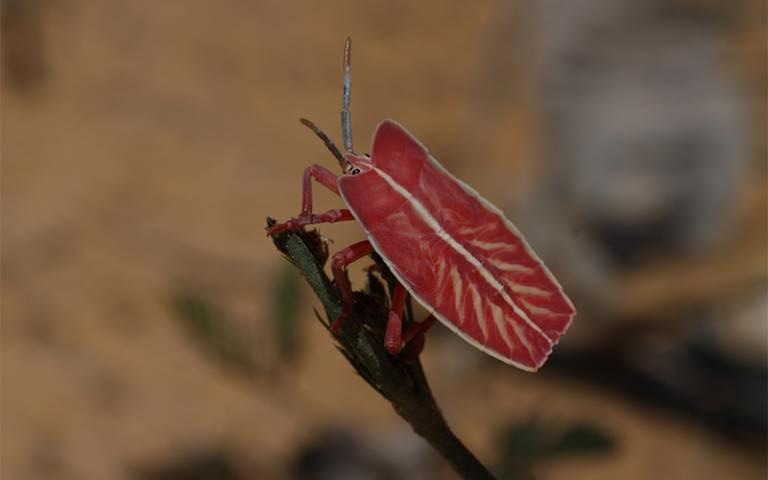A new study performed by researchers at the University College London (UCL) finds that intensive agricultural land use and climate change have earlier been accountable for a 49% decrease in the number of insects in the majorly impacted parts of the world.

Image Credit: University College London
The study reported in the journal Nature is the first to determine that an interaction occurring between increasing temperatures and land-use changes is forcing extensive losses in several insect groups throughout the globe.
Many insects appear to be very vulnerable to human pressures, which is concerning as climate change worsens and agricultural areas continue to expand. Our findings highlight the urgency of actions to preserve natural habitats, slow the expansion of high-intensity agriculture, and cut emissions to mitigate climate change.
Dr. Charlie Outhwaite, Study Lead Author, Centre for Biodiversity & Environment Research, UCL Biosciences, University College London
Outhwaite continued, “Losing insect populations could be harmful not only to the natural environment, where insects often play key roles in local ecosystems, but it could also harm human health and food security, particularly with losses of pollinators.”
“Our findings may only represent the tip of the iceberg as there is limited evidence in some areas, particularly in the tropics which we found have quite high reductions in insect biodiversity in the most impacted areas,” added Outhwaite.
A large dataset of insect abundance and species richness was examined by the researchers from areas throughout the globe which includes three-quarters of a million records for almost 20,000 insect species.
The research team made a comparison of the insect biodiversity in different areas based on how intensive agriculture is in the area, as well as how much historic climate warming is experienced in the local area.
The researchers discovered that in regions with high-intensity agriculture and considerable climate warming, the number of insects found was 49% below in the majority of the natural habitats with no registered climate warming, while the amount of various other species was 29% lower. Tropical areas saw the biggest falls in insect biodiversity linked to climate change and land use.
The researchers found that in regions of low-intensity agriculture and significant climate warming, having neighboring natural habitats buffered the losses: where 75% of the land was spanned by natural habitats, insect abundance decreased by only 7%, compared to a 63% reduction in equivalent areas with only 25% natural habitat cover.
Several insects depend on plants for shade on hot days, so a loss of natural habitats can leave them highly susceptible to a warming climate.
The scientists state that insect declines as a result of human impacts might be even greater compared to what their findings indicate, as many areas with a long history of human impact would have seen earlier biodiversity losses prior to the start of the study period, and the study also did not consider the effects of other drivers like pollution.
The environmental harms of high-intensity agriculture present a tricky challenge as we try to keep up with food demands of a growing population.
Dr. Tim Newbold, Study Senior Author, Centre for Biodiversity & Environment Research, University College London
Newbold added, “We have previously found that insect pollinators are particularly vulnerable to agricultural expansion, as they appear to be more than 70% less abundant in high-intensity croplands compared to wild sites. Careful management of agricultural areas, such as preserving natural habitats near farmland, may help to ensure that vital insects can still thrive.”
We need to acknowledge how important insects are for the environment as a whole, and for human health and wellbeing, in order to address the threats we pose to them before many species are lost forever.
Peter McCann, Study Joint First Author, Centre for Biodiversity & Environment Research, University College London
McCann said this while studying for a MSc at the UCL Centre for Biodiversity & Environment Research.
Researchers from the UCL Centre for Biodiversity & Environment Research headed this research, studying human impacts on the planet and developing the science underpinning the IUCN’s Red List that measures extinction risk and finding out that modifications to land use might be increasing the threats of disease outbreaks similar to COVID-19 that jump from animals to humans.
The center’s new interdisciplinary People and Nature Lab is coming up with new methods, like citizen science programs and applying artificial intelligence. This is to handle such immediate global difficulties and promote a highly sustainable relationship between people and nature.
This study was financially supported by the Natural Environment Research Council and the Royal Society.
Journal Reference:
Outhwaite, C. L., et al. (2022) Agriculture and climate change are reshaping insect biodiversity worldwide. Nature. doi.org/10.1038/s41586-022-04644-x